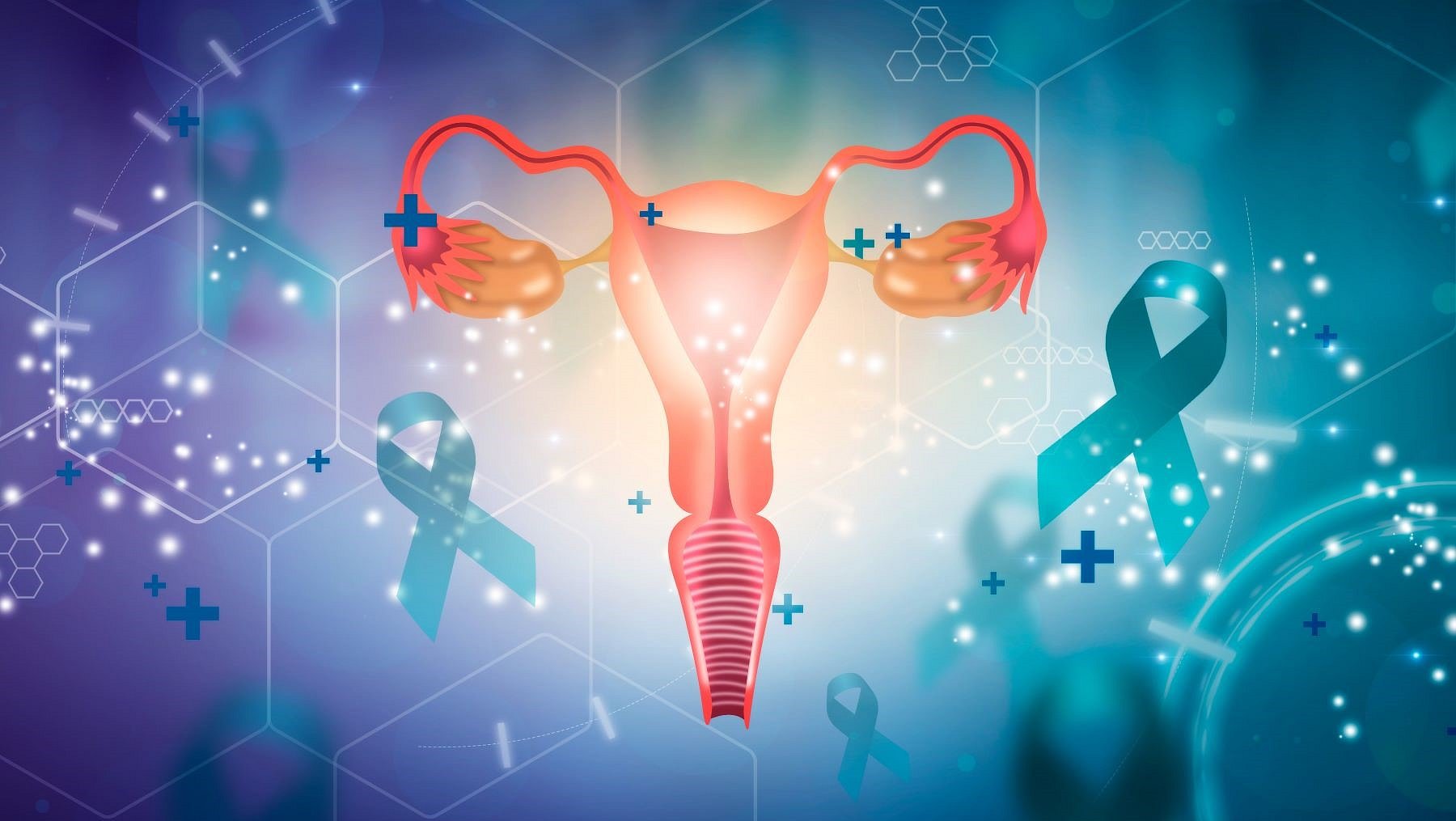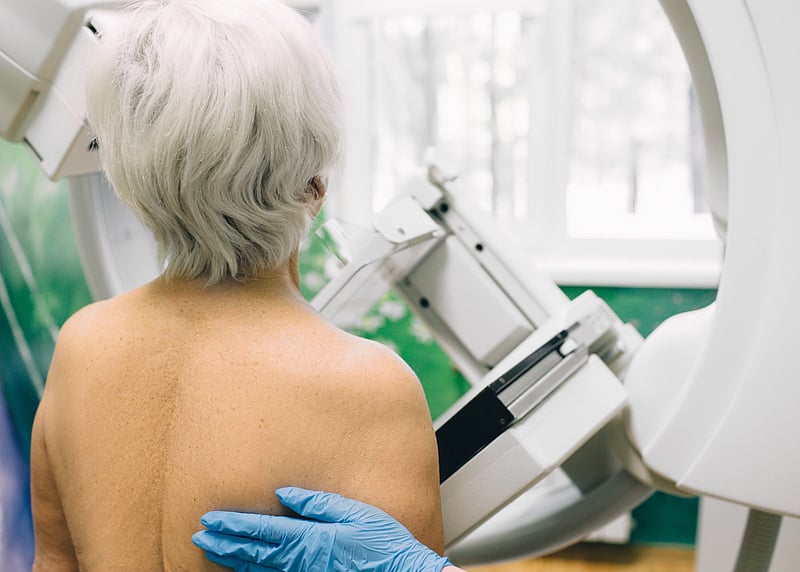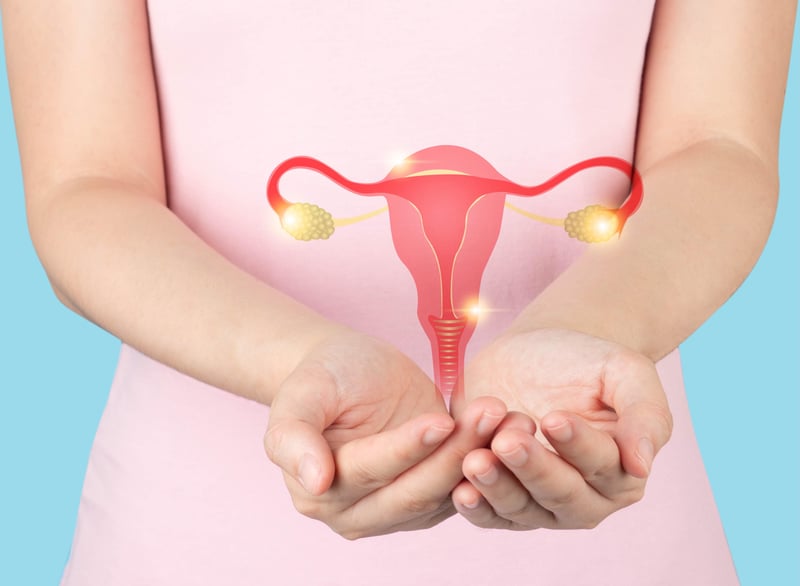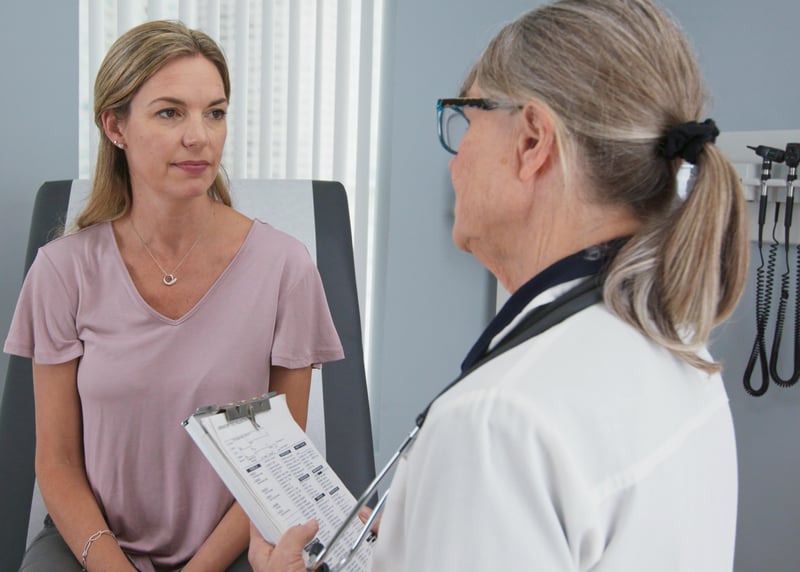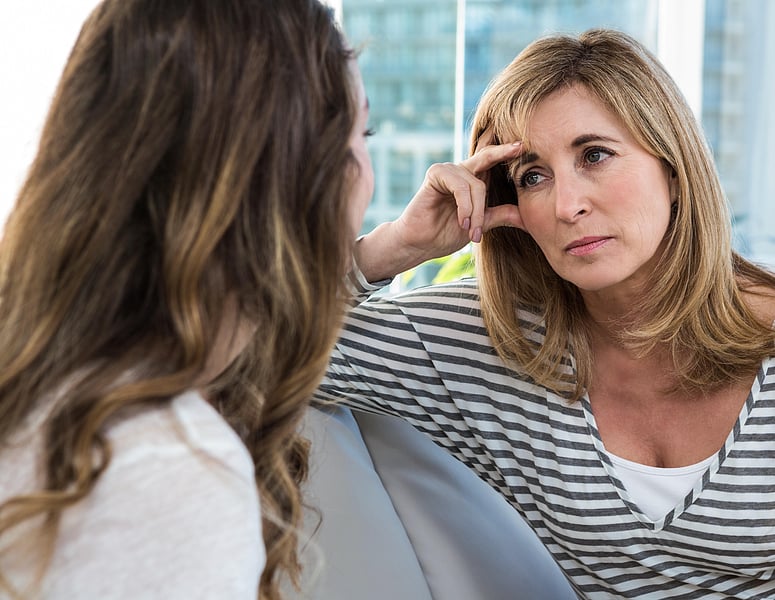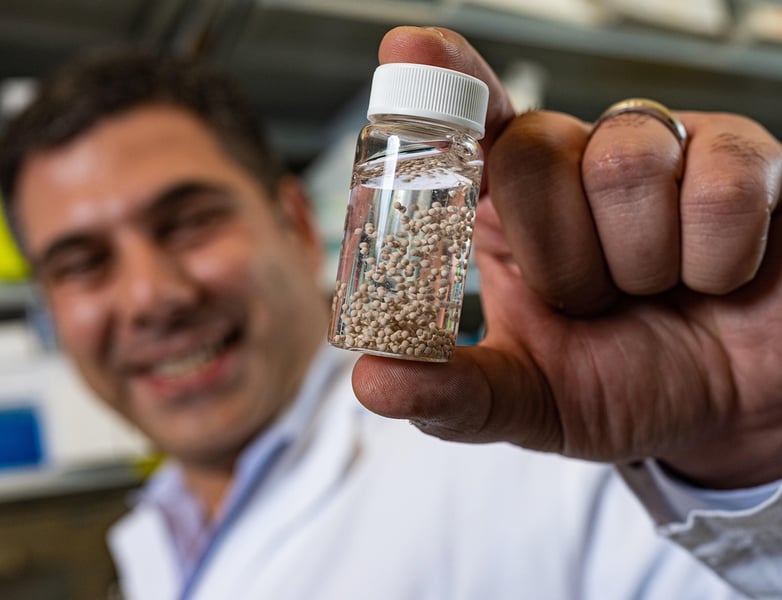Manténgase sano!
Resultados de su búsqueda "Cancer: Ovarian".
05 Feb
Could the Birth Control Pill Reduce Ovarian Cancer Risk?
A new study finds women who have used the Pill are 26% less likely to develop ovarian cancer, and the benefit is even greater in women who took the Pill while in their mid-forties.
Resultados de noticias de salud - 39
A young woman became a June bride months after surviving complex surgery to remove a 40-pound tumor from her body, Cedars-Sinai doctors report.
Adriana Pulido, 24, died on the operating table six times during an early attempt to remove the huge tumor.
Located near her liver, the tumor had grown so large that it had displaced her heart and was pressing against her right lung.
&...
- HealthDay Reporter
- Dennis Thompson
- |
- July 14, 2025
- |
- Página completa
Transmasculine and gender diverse people who use testosterone are not at an increased risk for cervical, ovarian or other gynecological cancers, a new study says.
The results show that hormone therapy can safely be used to induce physical changes more in line with a person’s gender ide...
- HealthDay Reporter
- Dennis Thompson
- |
- May 16, 2025
- |
- Página completa
A blood test used to check for ovarian cancer may not work as well for Black and Native American women, a new study suggests.
This could lead to delays in treatment and poorer health outcomes.
The study, published in JAMA Network Open, looked at more than 200,000 women with
The Pill prevents pregnancy -- and maybe ovarian cancer, too, a new study suggests.
Women who’ve ever used the contraceptive pill have a 26% lower risk of ovarian cancer, researchers say.
Women who used the pill after age 45 benefit even more, with a 43% lower risk of ovarian cancer, according to findings published in the
- HealthDay Reporter
- Dennis Thompson
- |
- February 5, 2025
- |
- Página completa
AI can outperform human doctors when it comes to identifying ovarian cancer from ultrasound images.
A new study published in the journal Nature Medicine shows that specially trained AI program achieved an accura...
- HealthDay Reporter
- Dennis Thompson
- |
- January 3, 2025
- |
- Página completa
Women worried about losing their locks during chemotherapy can safely take hair-loss drugs during breast cancer care, a new study says.
Minoxidil - the active ingredient in the over-the-counter Rogaine -- is commonly prescribed for ha...
- HealthDay Reporter
- Dennis Thompson
- |
- December 11, 2024
- |
- Página completa
Nearly a quarter of all ovarian cancers are fueled by family genetics, so what should you do if your mom or sister are diagnosed?
According to one expert, knowing whether you are at high risk is the first step toward taking measures that can mitigate that increased danger. Getting a genetic test for yourself is how you find that out.
What do you do if that test comes back positive?<...
- HealthDay Reporter
- Robin Foster
- |
- September 15, 2024
- |
- Página completa
Ovarian cancer is known as a "silent killer," since by the time symptoms arise the disease has often already spread.
But in certain cases of aggressive ovarian cancer, symptoms do arise in the tumor's early stages. In those instances, doctors on the alert can act quickly, offering patients a much better prognosis, a new study finds.
This "symptom-triggered testing" approach led to s...
- HealthDay Reporter
- Ernie Mundell
- |
- August 15, 2024
- |
- Página completa
Cancer rates are rising among Gen Xers and millennials, a new study reports.
Successively younger generations are more frequently being diagnosed half of the 34 known cancer types, researchers found.
For example, people born in 1990 have two to three times higher...
- HealthDay Reporter
- Dennis Thompson
- |
- August 1, 2024
- |
- Página completa
Women who struggle with endometriosis may be vulnerable to another health danger: New research shows they are about four times more likely to develop ovarian cancer than women who don't have the painful condition.
The odds are even worse for women with severe forms of endometriosis, as they are at least 9.7 times more likely to be diagnosed with ovarian cancer, the study published July 17...
- HealthDay Reporter
- Robin Foster
- |
- July 18, 2024
- |
- Página completa
Johnson & Johnson will pay $700 million to settle claims from 42 states and the District of Columbia that the company continued to market its talcum powder products even as evidence tied them to a heightened risk for cancer.
J&J did not admit to any wrongdoing in settling with the states, which were led by Florida, Texas and North Carolina.
"We have reached a landmark sett...
- HealthDay Reporter
- Robin Foster
- |
- June 13, 2024
- |
- Página completa
Menopause before the age of 40 could raise a woman's long-term risk for breast or ovarian cancers, new research suggests.
Besides that, "there is also higher risk of breast, prostate and colon cancer in relatives of these women" noted study author Dr. Corrine Welt. She's chief of endocrinology, metabolism and diabetes...
- HealthDay Reporter
- Ernie Mundell
- |
- June 4, 2024
- |
- Página completa
Johnson & Johnson announced Wednesday that it would pay out more than $6.5 billion over the next 25 years to settle existing lawsuits claiming that its talc-containing products caused ovarian cancer.
The settlement still awaits approval from claimants.
Claims from consumers that baby powders and other J & J talc-based products cause ovarian cancer have dogged
Using AI to track fragments of tumor-associated DNA in the blood, scientists say they may be close to an accurate test for a silent killer: Ovarian cancer.
It's the fifth leading cause of cancer death in the United States. Ovarian tumors are often lethal because they typically doesn't cause symptoms in their early, more treatable stages.
"Ovarian cancer is an incredibly deadly disea...
- HealthDay Reporter
- Ernie Mundell
- |
- April 10, 2024
- |
- Página completa
Harmful "forever" chemicals are widespread in the environment, and new research hints they pose a particular health risk to women.
A new study suggests women who are exposed to higher levels of per- and polyfluorinated alkyl substances, or PFAS, are more likely to have been diagnosed with certain cancers. Exposure is also linked to liver damage, fertility issues, high blood pressure and o...
- HealthDay Reporter
- Denise Mann
- |
- September 19, 2023
- |
- Página completa
Premenopausal women who have surgery to remove the ovaries (oophorectomy) and fallopian tubes may face chronic medical conditions and a decline in physical functioning, new research warns.
"The study is important because it emphasizes information that we already know, and that is that "¦premenopausal bilateral oophorectomy [PBO] is not good for women's health, and it's associated with in...
- HealthDay Reporter
- Sarah D. Collins
- |
- September 14, 2023
- |
- Página completa
Patients being treated for ovarian cancer often experience peripheral neuropathy, a side effect from their chemotherapy that can cause both pain and numbness for months, or even years.
Now, a new study suggests that six months of aerobic exercise may ease this unpleasant side effect.
"The results from this trial hold the potential to transform supportive care for ovarian cancer surv...
- HealthDay Reporter
- Cara Murez
- |
- August 9, 2023
- |
- Página completa
When thinking of people in high-risk jobs, hairdressers and beauticians don't immediately come to mind.
But cosmetologists have a much greater chance of developing ovarian cancer than the average woman, a new study reports.
Specifically, working for a decade or more as a hairdresser, barber or beautician is associated with a threefold higher risk of ovarian cancer, according to a re...
- HealthDay Reporter
- Dennis Thompson
- |
- July 11, 2023
- |
- Página completa
The risk for ovarian cancer among women with polycystic ovary syndrome (PCOS) doubles after they go through menopause, new research discovers.
"Our results and those from previous studies should be taken into account when revising guidelines on how to manage the health of women with PCOS in the long term,"said lead author
Having uterine fibroids or endometriosis can increase a woman's risk of developing ovarian cancer, but a new study finds that a hysterectomy can lower that risk for both Black and white women with fibroids.
"Conditions such as endometriosis and fibroids can impact health and quality of life,"said Dr. Barbara Norqui...
- HealthDay Reporter
- Cara Murez
- |
- May 3, 2023
- |
- Página completa
Tens of thousands of people suing Johnson & Johnson may get some relief after the company announced Tuesday that it will pay $8.9 billion to settle lawsuits that have been going for more than a decade.
The settlement would be paid out over 25 years and Johnson & Johnson's LTL Management subsidiary filed for bankruptcy to enable the payment, the company said in a
Women who have both of their ovaries removed before age 43 have an increased risk of developing Parkinson's disease or parkinsonism, according to a recent study.
This may owe to the sudden loss of estrogen and other hormones, which causes an abrupt endocrine dysfunction in premenopausal women, researchers said.
Though BRCA1 or BRCA2 gene mutations are associated with breast and ovarian cancer in younger women, those over 50 continue to have a high risk of breast cancer.
That's true even if they didn't have breast cancer earlier, new research shows.
"What is striking about our results is that br...
- HealthDay Reporter
- Cara Murez
- |
- February 28, 2023
- |
- Página completa
More women, even those at low risk for ovarian cancer, who have finished having children should have their fallopian tubes removed as a precaution to prevent the deadly disease, a leading research group has advised.
In new guidance released this week, the Ovarian Can...
- HealthDay Reporter
- Cara Murez
- |
- February 1, 2023
- |
- Página completa
Women who have both ovaries removed before menopause may have a heightened risk of developing Parkinson's disease years later, a new study suggests.
Looking at decades of data on more than 5,000 women, researchers ...
- HealthDay Reporter
- Amy Norton
- |
- November 8, 2022
- |
- Página completa
When a man has cancer in an area that affects sexual function, his doctor is likely to discuss it with him.
But the same is not true for a woman who has cancer in a sex organ, according to new research. Investigators found 9 in 10 men were asked about their sexual health, yet only 1 in 10 women received the same care.
"There seems to be a big disparity in the way we approach sexual...
- HealthDay Reporter
- Cara Murez
- |
- October 25, 2022
- |
- Página completa
It's important to talk to kids about family health risks, but the impact of sharing this kind of information has been unclear.
It's probably safe, according to a new study, but how are you supposed to do it -- and when?
Researchers found that kids generally have no problem coping when cancer risk information is shared with them. But it's not uncommon for parents to struggle with com...
- HealthDay Reporter
- Ellie Quinlan Houghtaling
- |
- July 22, 2022
- |
- Página completa
The U.S. Supreme Court's decision to overturn Roe v. Wade will limit cancer treatment options for pregnant women and put lives needlessly at risk, America's leading cancer societies warn.
About one in every 1,000 women who are pregnant will wind up being diagnosed wi...
- HealthDay Reporter
- Dennis Thompson
- |
- July 12, 2022
- |
- Página completa
A COVID-19 diagnosis can lead to potentially life-threatening treatment delays for women with gynecological cancers, a new study finds. That's especially true for non-white patients, the researchers said.
"We found that concurrent COVID-19 had significant negative effects on these cancer patients, especially among those who identified as Black or Asian," said study leader Dr. Gretchen Gla...
- HealthDay Reporter
- |
- March 21, 2022
- |
- Página completa
After surviving cancer, many older women suffer severe leg swelling that interferes with everyday life, a new study finds.
About one-third of older women develop this chronic condition - called lymphedema - after treatment for colon, uterine or ovarian cancer, according to the study.
"...
- HealthDay Reporter
- |
- March 10, 2022
- |
- Página completa
Tiny, implantable drug "factories" that churn out an immune system protein could offer a new way to battle some cancers, if research in lab mice pans out.
Researchers said the technology is readily translatable to human testing, and an initial trial could begin as soon as this year.
The approach uses tiny "beads" that are implanted near tumors to continuously release controlled amou...
- HealthDay Reporter
- |
- March 3, 2022
- |
- Página completa
Here's yet another consequence of America's childhood obesity epidemic: New research shows that girls with type 2 diabetes can set themselves up for developing a condition known as polycystic ovary syndrome (PCOS).
PCOS occurs when a woman's ovaries or adrenal glands produce more male hormones t...
- HealthDay Reporter
- |
- February 16, 2022
- |
- Página completa
Gender differences extend to cancer treatments, with women having a higher risk of severe side effects from certain treatments than men, a new study finds.
Previous research concluded women tend to have more side effects from chemotherapy, and this new paper shows the same is true for
Pap tests have long been used to detect cervical cancer early, but preliminary research suggests that cervical cells collected during those tests could also be used to catch other cancers, including deadly ovarian tumors.
Researchers found that by analyzing a particular molecular "signature" in cervical...
- HealthDay Reporter
- Amy Norton
- |
- February 2, 2022
- |
- Página completa
Most gene variants that have been labeled "pathogenic" may make only a small difference in a person's risk of actually developing disease, a new study suggests.
- HealthDay Reporter
- Amy Norton
- |
- January 27, 2022
- |
- Página completa
Researchers say they may be closer than ever to detecting ovarian cancer earlier and improving the odds for women with this life-threatening disease.
In a new study, scientists used stem cells created from the blood samples of women with BRCA mutations and ovarian cancer to fashion a model of fallopian tube tissue.
There, they found first hints of ovarian cancer in the fallopian tu...
- HealthDay Reporter
- Cara Murez
- |
- December 29, 2021
- |
- Página completa
New research on hysterectomies among women who don't have cancer determined there is an age at which it is safer to also remove the ovaries and fallopian tubes and an age at which it isn't.
Canadian scientists studied the cases of more than 200,500 women who had a hysterectomy for noncancerous reasons. They found an increased risk of death in women under 50 when the ovaries and fallopian ...
- HealthDay Reporter
- Cara Murez
- |
- December 9, 2021
- |
- Página completa
Early detection of ovarian cancer helps boost a woman's survival, and the U.S. Food and Drug Administration on Monday approved a new imaging drug that can help spot tumors during surgery.
The drug, Cytalux (pafolacianine), is meant to improve a surgeon's ability to detect ovarian cancer while operating on a patient.
It is administered intravenously before surgery and is used in conj...
- HealthDay Reporter
- Robert Preidt
- |
- November 29, 2021
- |
- Página completa
Patients who undergo surgery for certain types of cancer may have better short-term survival if they receive a particular anti-nausea drug, a preliminary study suggests.
Among more than 74,000 patients who had cancer surgery, researchers found that those who received the drug -- called dexamethasone -- were less likely to die in the next 90 days.
The vast majority of all patients su...
- HealthDay Reporter
- Amy Norton
- |
- October 12, 2021
- |
- Página completa








